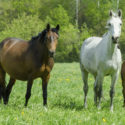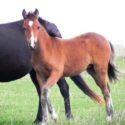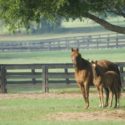Equine Reproduction
Researching Infertility in Mares due to Endometritis
It is not uncommon for mares to have trouble getting pregnant because their uterus remains too inflamed after breeding. This condition is referred to as persistent breeding-induced endometritis (PBIE). Ontario Veterinary College researcher, Dr. Tracey Chenier is working to find out what causes this inflammation and how to treat it. “Horse owners and breeders often…
Infographic Distills Research Investigating a Parasite that may be Involved in Equine Abortions
A study has uncovered that exposure to Neospora parasites is widespread among Ontario broodmares and may play a role in Equine Abortions. Dr. Chenier, MSc student Olivia Johns and epidemiologist Dr. David Pearl at the Ontario Veterinary College have collected samples from Ontario breeding farms to find seroprevalence is close to 30%. Risk factors identified…
Research on Equine Pregnancy
The value of long-term studies is well understood by researcher, Dr. Keith Betteridge who has been involved with Ontario Veterinary College equine reproduction studies since 1986. Since graduating as a veterinarian from Bristol University, England, in 1959, Betteridge has seen reproduction technology evolve with the introduction of ultrasound in the 1980s and, most recently, RNA…




